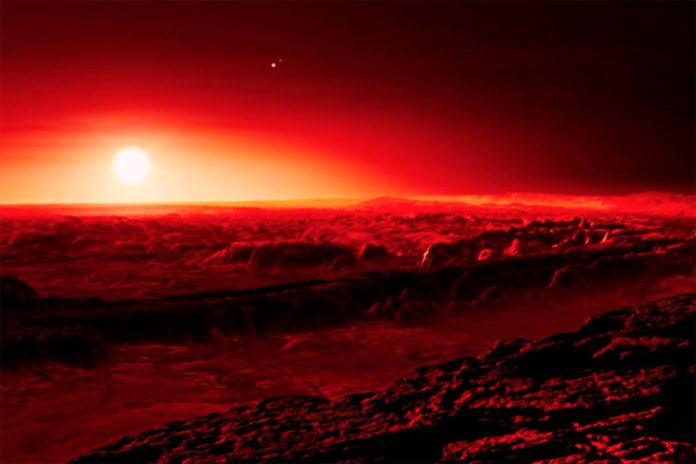
Every year, NASA find hundreds of other planets. Usually, these “exoplanets” don’t hold any major significance but scientists yesterday found one that might change that. The European Southern Observatory found a planet the size of Earth orbiting our closest star. This one is different than the rest meaning that a possibility of aliens is all but a reality.
NASA AND EUROPE TEAM UP TO FIND ALIENS; EARTH IS NOT ALONE
NASA tends to get all the credit for major space findings however, it’s the European Southern Observatory that is making headlines now. According to scientists, Proxima Centauri, is a red dwarf star. This red dwarf is smaller and colder than our sun. Yet, it’s warm enough to sustain life on other planets. The life on this new exoplanet will be very different to that on Earth. If there are aliens on there, they will not see the beautiful blue sky that we do. Instead, a dark red.
ALIENS POSSIBLE BUT NASA WANTS TO LEARN MORE ABOUT EARTH
While this new discovery is exciting for NASA and scientists but don’t expect aliens to show up just yet. Scientists want to learn more about Earth. Not alien life just yet. Sure, it would be nice to find alien life. It’s the result everyone ideally wants. That is far in the future, though. We still have so much to learn about our own planet. Scientists believe that by examining similar ones, we can start to unravel the mysteries here. Once we figure that out, finding intelligent life is the next step.
WILL ALIENS FIND NASA AND EARTH FIRST?
While scientists here are busy putting around, alien life is out there. They will not wait for us to catch up technologically. They will find us before we find them. Some think that it has already happened. The only way we will find them first is if humans are the most advanced species in our immediate vicinity. Life on other planets could mean microorganisms. On the other hand, we might be the ones being observed. As always, the answer is up for debate.

















